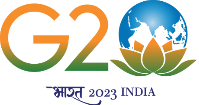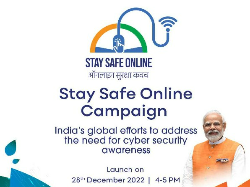About us
The Nagaland Pollution Control Board is a statutory body constituted on 19th February, 1991 under the provision of Section 4 of the Water (Prevention & Control of Pollution) Act, 1974 with a view to protecting the environment and preventing and controlling pollution in the State of Nagaland.
MOTTO :‘Cleaner & Healthier Nagaland’
FUNCTIONS AND ACTIVITIES OF THE BOARD:
The Section 17 of both the Water (Prevention and Control of Pollution) Act, 1974 and Air (Prevention and Control of Pollution) Act, 1981 have clearly spelt out the legally mandated responsibilities of the State Pollution Control Board as detailed below:
- To plan comprehensive programme for the prevention, control or abatement of water and air pollution in the state and to secure the execution thereof;
- To advise the state Government on any matter concerning the prevention, control or abatement of water and air pollution;
- To collect and disseminate information relating to water and air pollution, and the prevention, control or abatement thereof;
- To encourage, conduct and participate in investigation and research relating to problems of water pollution and prevention, control or abatement of water pollution;
- To collaborate with the central board in organizing the training of persons engaged or to be engaged in programmes relating to prevention, control or abatement of water and air pollution and to organize mass education programmes relating thereof;
- To inspect sewage or trade effluent, works and plants for the treatment of sewage and trade effluents and to review plans, specifying or other data relating to plants set up for the treatment of water, works for the purification thereof and the system for the disposal of sewage or trade effluents or in connection with the grand of consent as required by the Water Act;
- To inspect at all reasonable times, any control equipment, Indus trail plant or manufacture process and to give, by order, such as persons as it may consider necessary to take steps for the prevention, control or abatement of air pollution in such areas;
- To lay down, in consultation with the Central Board and having regard to the standards for the quality of air laid down by the central board, standards for emission of air pollutants in the atmosphere from industrial plants and automobiles or for the discharge of any air pollutant into the atmosphere from any other source whatsoever not being a ship or an aircraft;
- To evolve economical and reliable methods of treatment of sewage and trade effluents having regard to the peculiar conditions of soils, climate and water resources of different regions and more specially the prevailing flow characteristics of water in streams and wells which render it impossible to attain even the minimum degree of dilution;
- To evolve methods of utilization of sewage and suitable trade effluents in agriculture;
- To evolve efficient methods of disposal of sewage and trade effluents on land, as are necessary on account of the predominant conditions of scant stream flows that do not provide for major part of the year the minimum degree of dilution;
- To lay down standards of treatment of sewage and trade effluents to be discharged in any particular stream by taking into account the minimum fair weather dilution available in that stream and the tolerance limits of pollution permissible in the water of the stream, after the discharge of such effluents;
- To make, vary or revoke any order for prevention, control or abatement of discharge of waste into streams or wells and requiring any person concerned to construct new system for the disposal of sewage and trade effluents or to modify, alter or extent any such existing system or to adopt such remedial measures as are necessary to prevent control or abate water pollution;
- To lay down effluent standards to be complied with by persons while causing discharge of sewage or sullage or both, and to lay down, modify or annul effluent standard for the sewage and trade effluents;
- To advice the State Government with respect to the suitability of any premises or location of any industry, which is likely to cause air pollution or likely to pollute a stream or well;
- To perform such other functions as may be prescribed or as may, from time to time, be entrusted to it by the Central Board or the State Government; and
- To do such other things and to perform such acts as it may think necessary for the proper discharge of its functions and generally for the purpose of carrying into effect the purpose of the Air Act.
CONSTITUTION OF THE BOARD:
The State Government nominates the members of Nagaland Pollution Control Board. The board originally constituted as per Section 4 of the Water (Prevention & Control of Pollution) Act, 1974 on 19th February, 1991, was reconstituted in 2003.
Board Members:
| 1 | Shri. Dharmendra Prakash, IFS, PCCF & HoFF | Chairman |
| 2 | Secretary Law & Justice, Department, Nagaland, Kohima | Member |
| 3 | Director of Industries, Nagaland, Kohima | Member |
| 4 | Director of Health Services, Nagaland, Kohima | Member |
| 5 | Chief Engineer P.W.D. Nagaland, Kohima | Member |
| 6 | Chief Engineer P.H.E.D., Nagaland, Kohima | Member |
| 7 | Secretary, Indian Red Cross Society, Nagaland, Kohima | Member |
| 8 | President, Naga Mother’s Association, Nagaland, Kohima | Member |
| 9 | President, Chamber of Commerce, Nagaland, Kohima | Member |
| 10 | President, Nagaland Baptist Church Council, Nagaland, Kohima | Member |
| 11 | K. Hukato Chishi, IFS | Member Secretary |
LEGISLATION
Laws
The Nagaland Pollution Control Board has been empowered with the provisions of the following Acts & Rules:-
- The Air (Prevention & Control of Pollution) Act, 1981
The Air (Prevention & Control of Pollution) Rules, 1981 - The Water (Prevention & Control of Pollution) Act, 1974
The Water (Prevention & Control of Pollution) Rules, 1975 - The Environment (Protection Act), 1986
- The Environment Protection Rules, 1986 (2000)
- The Environment Impact Assessment (EIA) Notification, 1994
- The Hazardous Waste (Management & Handling) Rules, 1989 and its Amendments
- The Manufacture, Storage and Import of Hazardous Chemical Rules, 1989 and its amendments
- The Chemical Accidents (Emergency Planning, Preparedness & Response) Rules, 1996
- The Manufacture, Use, Import, Export and Storage of Hazardous Micro-organism Genetically Engineered Organisms or Cells Rules, 1989.
- The Bio-medical Wastes (Management & Handling) Rules, 1988, and its Amendments.
- The Municipal Solid Wastes (Management & Handling) Rules, 2000.
- The Recycled Plastics Manufacture and Usage Rules, 1999 and its Amendments.
- The Noise Pollution (Regulation & Control) Rules, 2000.
- The Batteries (Management & Handling) Rules, 2001.
- Ozone Depleting Substances (Regulation) Rules, 2000.
- The Public Liability Insurance Act, 1991 as amended.
Disclaimer
All efforts have been made to make this information as accurate as possible; the Nagaland Pollution Control Board will not be responsible for any loss to any person caused by inaccuracy in the information available on this Website. Relevant Official Gazettes may be consulted for accurate information. Any discrepancy found may be brought to our notice.
The details of the latest development regarding the Environmental Legislation can be obtained by visiting the site of Ministry of Environment, Forest and Climate Change, Government of India website.







